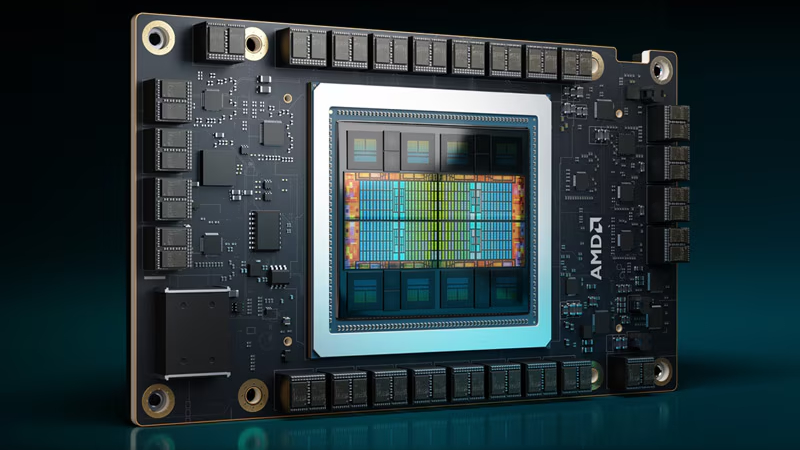Trump lightens chip bans on China, AMD to restart MI308 AI chip sales in the country, joining Nvidia's H20 — 'We plan to resume shipments as licenses are approved'
"We were recently informed by the Department of Commerce that license applications to export MI308 products to China will be moving forward for review"

Just hours after Nvidia announced that the sale of H20 chips in China is set to be approved by Washington, AMD has now confirmed it also plans to resume shipments of its MI308 chips in the country, following a similar shift by the administration. The company confirmed to Tom's Hardware that its license applications to export the chip will be moving forward for review, with the implied understanding that they will be granted.
As noted, the news follows the revelation that Nvidia will resume the sale of its H20 chips in China. AMD says it was recently informed by the Department of Commerce that its license applications to export MI308 would be going ahead, and says it "plans to resume shipments as licenses are approved." In a statement, the company further noted, "We applaud the progress made by the Trump Administration in advancing trade negotiations and its commitment to US AI leadership."
As with Nvidia, AMD has chafed under restrictions on AI hardware export restrictions put forward by both the previous Biden administration and the current Trump administration. The former introduced a blanket AI diffusion rule; the latter, while reversing AI diffusion, placed specific restrictions on the H20 and MI308 chips.
AMD confirmed at the time that the measures could cost it in the region of $800 million in inventory, purchase commitments, and related reserves. While not quite the $5.5 billion write-off suffered by Nvidia, that's enough to hurt anyone's bottom line, making today's shift in policy a welcome break for Team Red.
AMD shares have surged by nearly 5% in pre-market trading following the news, a similar jump to Nvidia, as shareholders welcome the development.
The overturning of the specific bans on the H20 and MI308 chips marks a seismic policy shift within Washington, following months of protracted back-and-forth. Nvidia CEO Jensen Huang has been a notable detractor of such measures, calling export control a failure and praising President Trump's move to roll back the AI diffusion rule. Huang has repeatedly stated that export controls could limit U.S. power in the advancing world of AI and force countries like China to look inward for innovation and alternative hardware solutions, possibly buoying the country's efforts rather than stalling them.
Most recently, he downplayed concerns that China's military could use U.S. AI tech and stated, "Just like we want the world to be built on the American dollar, using the American dollar as the global standard, we want the American tech stack to be the global standard." He reiterated that in order for America to have AI leadership," it needs to make sure the American tech stack is available to markets all over the world."
Get Tom's Hardware's best news and in-depth reviews, straight to your inbox.
Follow Tom's Hardware on Google News to get our up-to-date news, analysis, and reviews in your feeds. Make sure to click the Follow button.

Stephen is Tom's Hardware's News Editor with almost a decade of industry experience covering technology, having worked at TechRadar, iMore, and even Apple over the years. He has covered the world of consumer tech from nearly every angle, including supply chain rumors, patents, and litigation, and more. When he's not at work, he loves reading about history and playing video games.